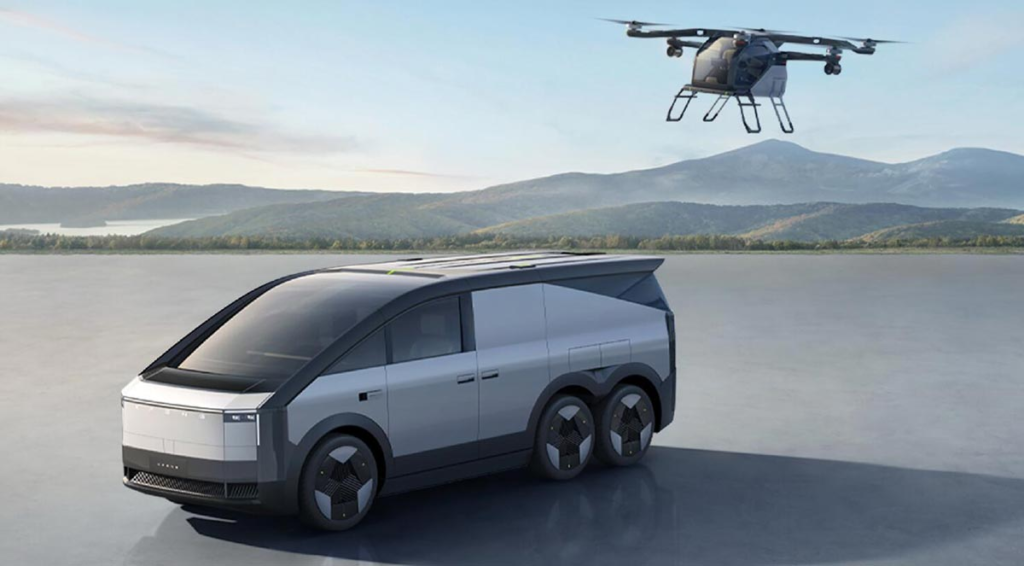Xpeng’s AI Robot Revolutionizes Car Reservations with Mona M03
Xpeng is pushing the boundaries of AI and robotics with a new demonstration featuring its AI robot successfully pre-ordering the upcoming Mona M03 electric vehicle. In a video, the robot navigates the online reservation process, showcasing the potential for automation in tasks traditionally handled by humans. The robot performs everything from selecting the model to confirming details, only requiring human intervention for the payment step. This innovation aligns with Xpeng’s broader strategy to integrate cutting-edge technology with its electric vehicles, setting the stage for a more automated future in automotive services.

The Mona M03, expected to launch soon, is generating significant buzz, and this AI demonstration adds to the anticipation. By enabling AI to handle complex transactions like vehicle reservations, Xpeng is not only enhancing user experience but also demonstrating its commitment to pioneering advancements in AI and robotics. This move could redefine customer interactions and operational efficiency in the automotive industry, marking a significant milestone for both Xpeng and the broader market.
Neuralink’s Brain-Controlled Gaming Breakthrough Stuns the Internet
Elon Musk’s Neuralink has achieved a groundbreaking milestone with its second patient successfully playing ‘Counter-Strike’ using only brain signals. This feat highlights the rapid progress of Neuralink, a company founded in 2016 to develop brain-computer interfaces aimed at enhancing human capabilities. Initially focused on medical applications, such as treating neurological disorders, Neuralink’s advancements now hint at a future where technology and the human brain are seamlessly integrated, revolutionizing how we interact with digital environments.

Online reactions range from amazement at the technological possibilities to deep discussions about the ethical implications of such innovations. Neuralink’s journey from its early days of implanting devices in animals to enabling human patients to control devices with their minds marks a significant leap forward in the field of neurotechnology. The potential applications extend beyond gaming, promising a future where brain-machine interfaces could transform communication, mobility, and even entertainment.
Xpeng Aeroht to Revolutionize Urban Air Mobility with New Flying Car Factory
Xpeng Aeroht, a subsidiary of Xpeng focused on flying cars, is set to establish the world’s first factory for the mass production of flying cars in Guangzhou. This new facility will be dedicated to manufacturing modular flying bodies for Xpeng’s next-generation vehicles, combining the latest advancements in electric vehicle and aviation technology. By integrating research, development, and sales under one roof, Xpeng Aeroht aims to make flying cars a mainstream reality, with pre-sales expected by late 2024.

Founded in 2013, Xpeng Aeroht has steadily advanced the flying car concept, with its first model, the X1, debuting at the 2021 Shanghai Auto Show. The Guangzhou plant marks a significant milestone in their journey, as the company seeks to lead the emerging urban air mobility market. This initiative reflects Xpeng’s broader vision of transforming the future of transportation by merging ground and air travel into a seamless experience.
AI Cooks Up a Revolution: The Future of Food in Kitchens at Home and Beyond
Artificial intelligence is making waves in the culinary world, transforming how meals are prepared both at home and in restaurants. In Tokyo, the E Vino Spaghetti Restaurant has introduced P-Robo, a robotic chef that prepares pasta in just 45 seconds, while the UK’s Moley Robotics unveils the world’s first fully robotic kitchen capable of handling complete meal preparation and ingredient management. In India, The Yellow House in Jaipur features AI-powered robots serving food, illustrating a growing trend of automation in dining.

At home, advanced appliances like Nosh, Upliance, and Wonderchef’s Chef Magic are revolutionizing cooking by automating meal preparation with customizable options and preloaded recipes. AI platforms such as ChefGPT further enhance the culinary experience by assisting with meal planning and recipe creation. This wave of technological innovation is reshaping kitchens, promising greater efficiency and personalization in food preparation.
